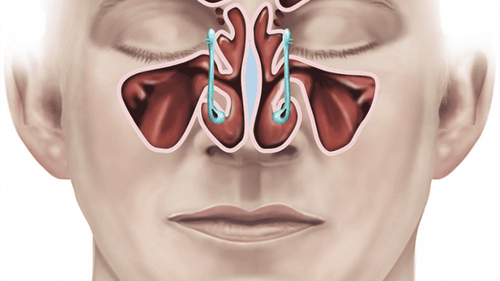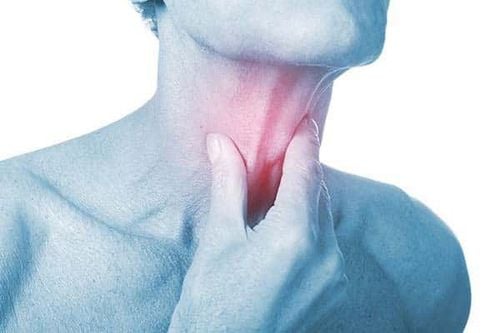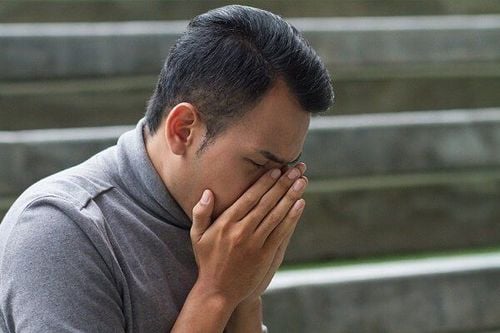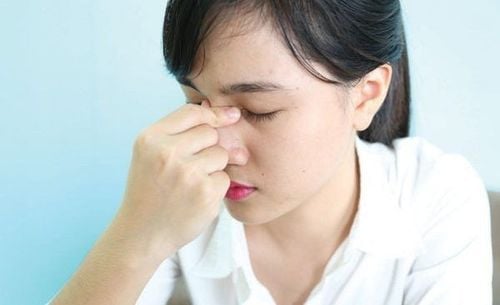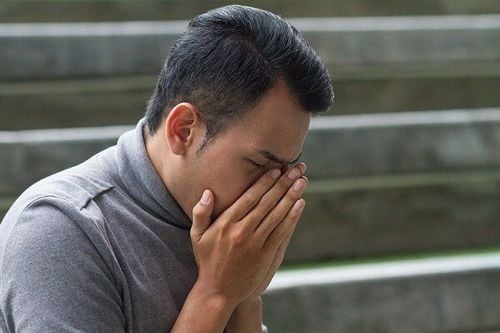This is an automatically translated article.
The article was professionally consulted by Specialist Doctor of Otolaryngology - Department of Medical Examination and Internal Medicine - Vinmec Hai Phong International Hospital. Doctor has more than 10 years of experience in examining and treating ENT diseases of adults and children.
Nasal polyps cause nasal congestion, nasal congestion, even breathing through the nose, loss of ability to smell, closed nasal voice. Early diagnosis and treatment of nasal polyps can limit dangerous symptoms.
1. Diagnosis of nasal polyps
Polyps often grow slowly and grow larger, gradually causing dizziness in the nasal cavity, leading to the most typical symptom of stuffy nose. Nasal congestion gets worse and worse, leading to nasal congestion. In case polyps occur on both sides of the nasal cavity, it will lead to inability to breathe through the nose, loss of ability to smell and a closed nasal voice. In addition, there may be additional symptoms of runny nose when the weather changes, similar to allergic rhinitis or thick runny nose, sinus pain due to purulent sinusitis.
To diagnose nasal polyps, the doctor can rely on signs when examining the nose: there is a soft, succulent, smooth, pale pink tumor, usually in the middle nasal cavity. If left for a long time, polyps will be seen to gather into one or more masses and clusters, filling the nasal cavity, protruding the posterior nasal passage, and possibly spreading to the dome. If nasal polyps are caused by sinusitis, you will see that around the polyps there is a lot of pus attached, but the polyp face is not necrotic. In addition to common polyps, other types can be encountered as follows:
Killian solitary polyp: There is only a single polyp, which can grow in the middle nasal cavity, nasal peduncle or septum. The only symptoms encountered are stuffy and blocked nose. Bleeding polyp: A type of polyp that often has legs attached to the septum, the Kisselbach pulse point, so it is easy to cause bleeding. Woakes disease: Polyps present in the ethmoid sinuses on both sides of the nose, causing the main bone of the nose to deform, the base of the nasolabial tube to widen, the nasolabial folds and eyes to be inflated, the two inner corners of the eyes to become further apart.
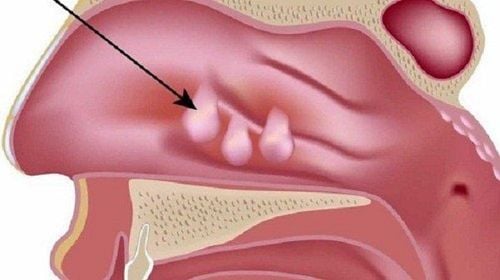
2. Determining the diagnosis of nasal polyps
Degenerative middle nasal peduncle : Caused by chronic sinusitis. The middle nasal peduncle degenerates to become a soft, smooth, pale pink mass similar to polyps because they have the same structure. When using the probe, the leg is stiff due to the curly bones. When the inside of the nasal cavity has both polyps and the middle nasal peduncle degenerate, they will swell and fill the nasal cavity, making it difficult to differentiate.
Nasopharyngeal fibroids : Occurs when polyps grow into the posterior nasal passage, into the arch or the patient has fibroids growing into the nasal cavity. Fibroids are common in puberty, manifest as milky white mass, not succulent, denser and easy to cause bleeding.
Cancer of the jaw: There is a soft tumor like a nasal polyp, but the tumor is usually not smooth, but sometimes has rough spots, uneven density, or surface necrosis, which is easy to cause bleeding, pus and pus. bloody and foul smelling.
3. Treatment of nasal polyps

3.1. Medical treatment with drugs To treat small nasal polyps, nasal sprays containing corticosteroids can be used. This active ingredient helps reduce inflammation, improves nasal ventilation and can shrink polyps. Side effects of steroid nasal sprays are much less common than oral medications and can include: nosebleeds, headache, and sore throat.
Other drugs used in the treatment of nasal polyps, including:
Oral corticosteroids: Although they can cause serious side effects, sometimes it is necessary to use oral corticosteroids, either alone or in combination with drugs. nasal spray, usually for short-term use only; Medicines to fight allergies and infections: In addition to treating nasal polyps, the doctor needs to control the patient's allergies and infections. Antihistamines are used to combat allergic reactions caused by the body's exposure to an irritant. In addition, antihistamines also work to relieve nasal congestion, although they cannot eliminate polyps. In addition, for acute infections in the sinuses, additional antibiotics may be required; Antifungal drugs: Some cases of chronic sinusitis patients may be the result of an abnormal immune response occurring in the body when exposed to fungi in the surrounding environment. Therefore, antifungal medication is sometimes indicated, although surgical removal of the infected tissue is still required. 3.2. Surgery When medical treatment is not effective, the doctor will consider surgery to treat nasal polyps. In addition, for patients with cystic fibrosis who have corticosteroid-resistant nasal polyps, surgery is considered the only option. Depending on the number and location of polyps, surgical methods can be removed or endoscopic sinus surgery.
4. Endoscopic sinus surgery to treat nasal polyps at Vinmec
Endoscopic sinus surgery (FESS) is sinus surgery performed through the nose under the guidance of an endoscope. Endoscopic sinus surgery helps patients with nasal polyps restore the circulation of the nasopharynx, restore the structure and function of the mucosal layer in the sinuses. Advantages of endoscopic sinus surgery in treatment Nasal polyps:
Outstanding advantage in increased illumination, clarity and the ability to observe anatomical landmarks in the nasal cavity, doctors can easily access and accurately evaluate pathologies deep in the nasal cavity. Remove the inflammatory foci while preserving the maximum amount of healthy mucosa, even the pathological mucosa can be restored, limiting the radical mucosal removal as in the previous radical surgery. Take the restoration of the sinus mucosa as the basis of healing. Surgery is gentler, more accurate than open surgery under the light of the Clari lamp. No need to stay in the hospital, you can go home after surgery. Safe surgery with few complications.
Please dial HOTLINE for more information or register for an appointment HERE. Download MyVinmec app to make appointments faster and to manage your bookings easily.




